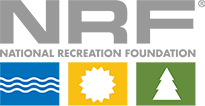Our Grants
2025 Trustee Grants
Current Year Grant Summary
In 2025, the National Recreation Foundation awarded 30 Trustee Grants totaling $570,000.
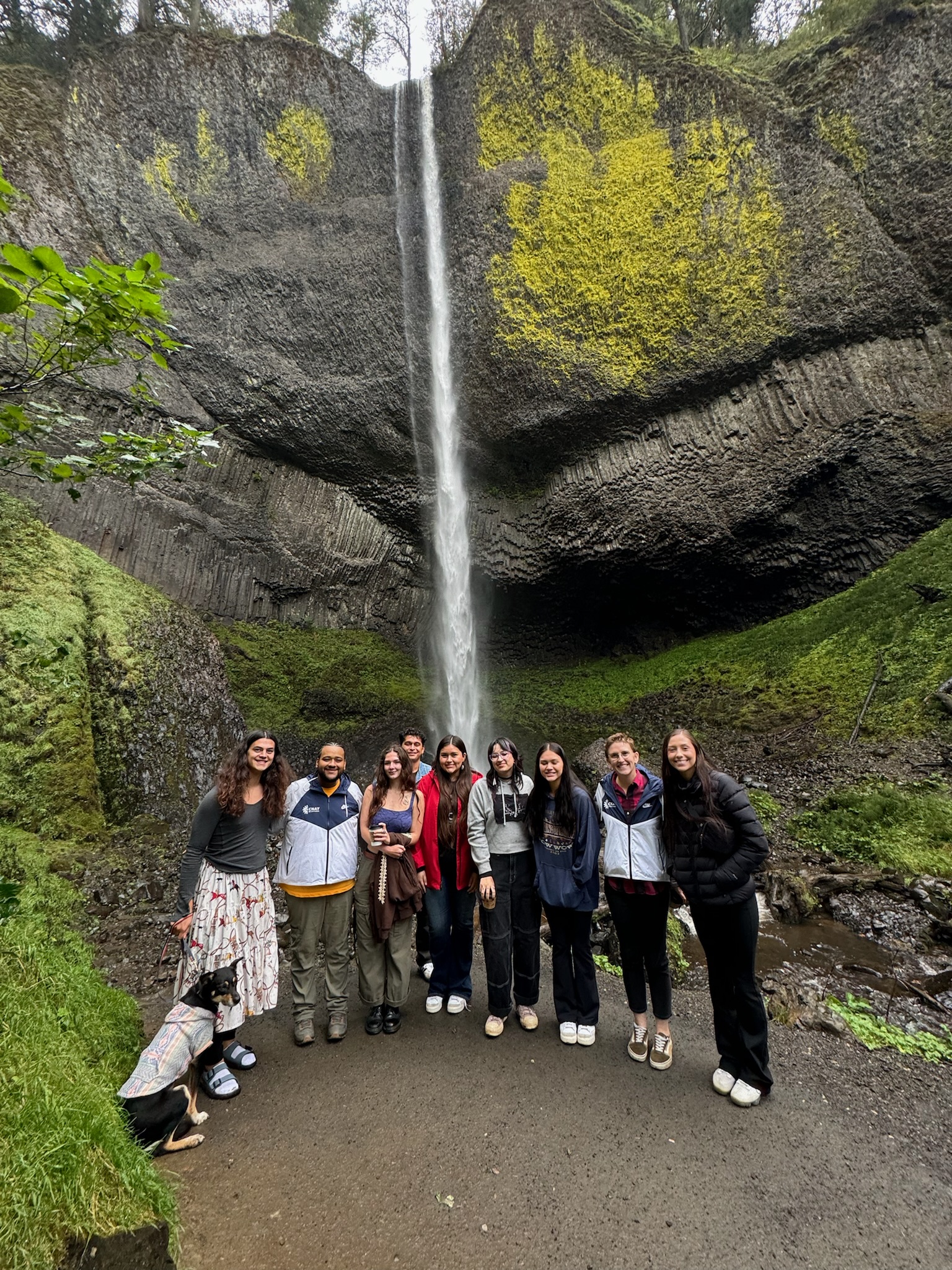
Center for Native American Youth
- Washington, D.C.
- Website: cnay.org
- Grant amount: $30,000
Climate justice is one of the most complex social challenges of our society today, and Native youth are standing in power with a desire to lead and address it. The Center for Native American Youth (CNAY) at the Aspen Institute has successfully developed and implemented a fellowship model that incorporates best practices when working with Native youth. This model centers youth climate priorities to address climate change and strengthen community through Native youth-led Community Action Projects that encourage and include outdoors recreation, ceremony, culture, elders, and education in solution building. Primary components of the fellowship include a comprehensive understanding of the crisis; access to mentors and leaders in the climate justice movement; Indigenous knowledge sharing; resources for a required outdoor community action project; and opportunities to uplift solutions to leaders and policy makers. The youth fellows conduct Community Action Projects and work with other youth and partner organizations to host a community project/initiative for the protection of land, waterways, and sacred sites.
A Warm Current
- Washington
- Website: warmcurrent.org
- Grant amount: $10,000
A Warm Current introduces tribal youth to the sport of surfing, which they might not experience otherwise due to a lack of surfing knowledge, equipment, access to experienced surfers, and education on ocean safety. Through its annual summer surf camps, A Warm Current collaborates with the Makah, Quileute, Hoh, and Quinault Indian Nations and addresses the need for recreational and educational opportunities in rural coastal communities, where such programs are often limited by cultural and economic barriers. By providing wetsuits, surfboards, personalized surf instruction, and community encouragement, A Warm Current aims to foster self-confidence and a deep appreciation for the ocean among Native youth. In addition to learning surf skills, youth build self-esteem, respect for the ocean and environment, and a sense of community. Tribal members gather to cheer on the youth which makes camps fun and engaging, while strengthening community bonds.
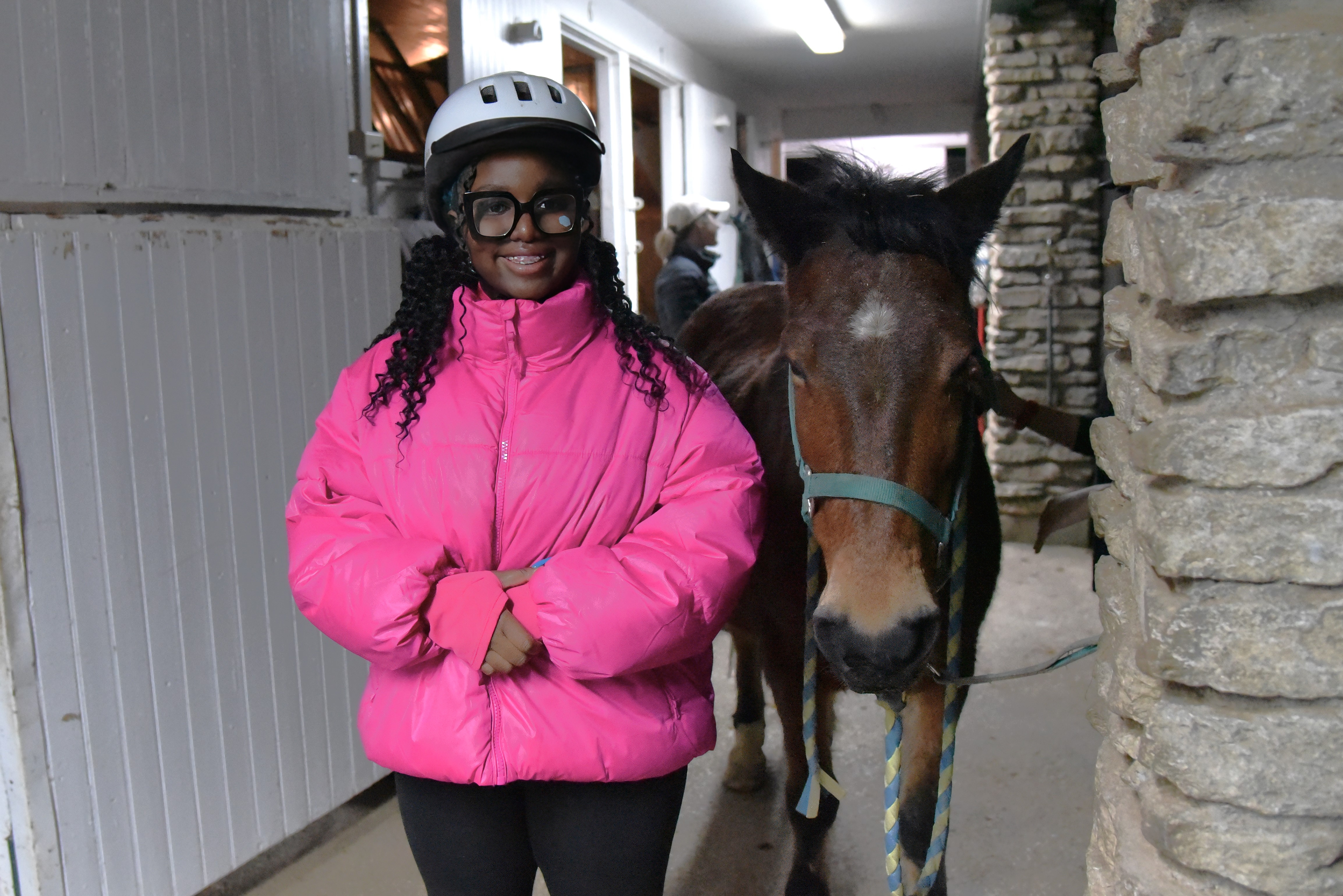
Adventure Crew
- Ohio
- Website: adventurecrew.org
- Grant amount: $30,000
Adventure Crew works to increase access to the health and well-being benefits of outdoor adventure experiences for Cincinnati teens. Its most enduring program is Saturday Explorers, which is held in collaboration with 27 public schools. This gateway experience eliminates barriers of all costs, transportation, food, and mentorship, so students otherwise unable to access outdoor recreation and environmental enrichment opportunities can participate. Adventure Crew’s Crew Pathways is a series of four progressive programs that emerged in response to Saturday Explores students wanting opportunities to participate more frequently, deepen their adventure sport skills, and to spend more time in nature with their peers. Crew Pathways is a “choose your own adventure” growth experience, from grade 7 through grade 12, where youth chart their own paths based on their specific interests as they rise through each successive program level. This framework empowers the next generation of outdoor enthusiasts and environmental stewards, who represent the vibrant diversity of the city, by equipping them with skills and resources. This allows them to not only enjoy outdoor adventuring, but to also actively contribute to and safeguard natural spaces in their future careers, advocacy, and recreation.
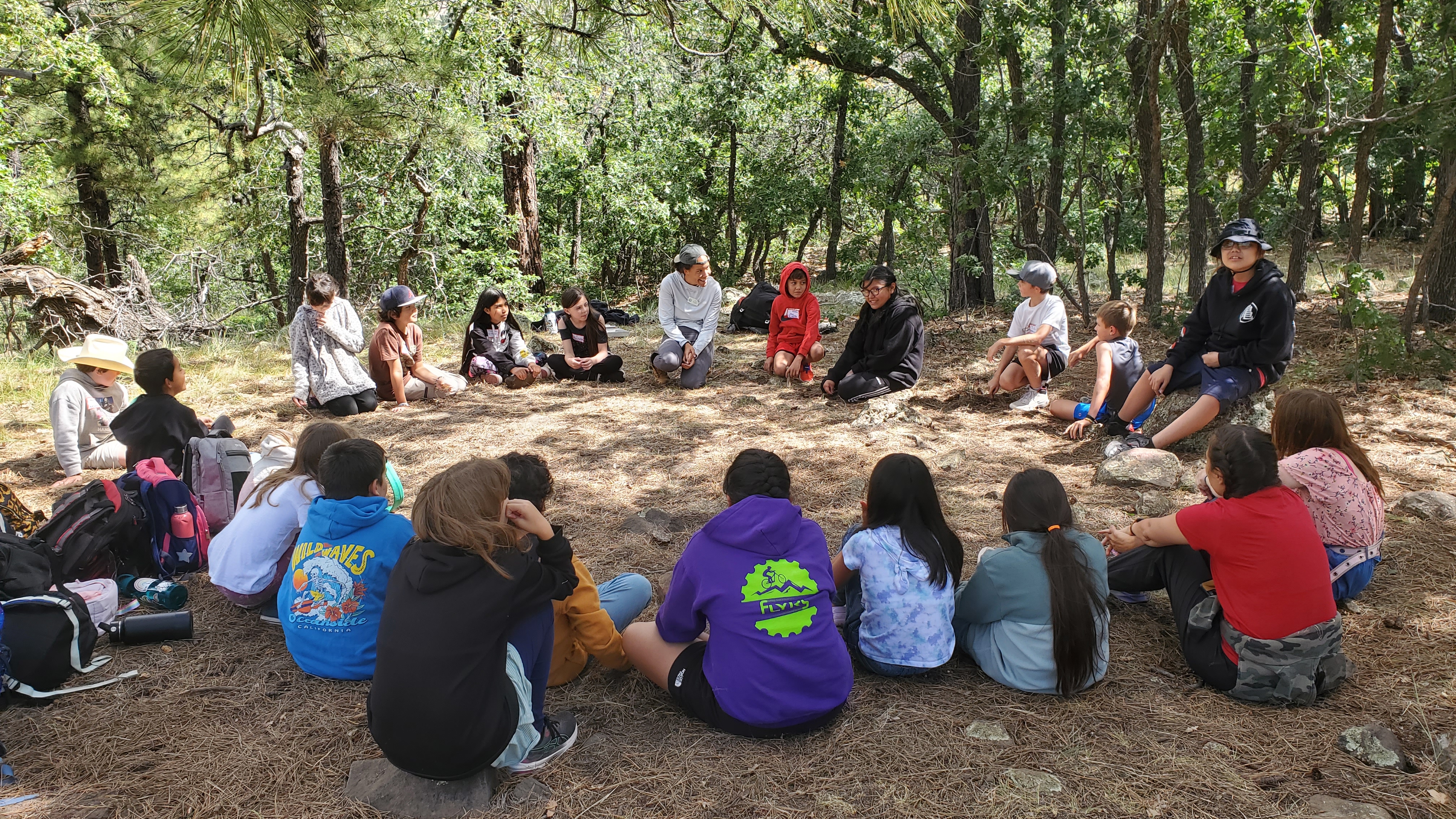
Arizona Trail Association
- Arizona
- Website: aztrail.org
- Grant amount: $15,000
Arizona Trail Association protects, maintains, enhances, promotes, and sustains the Arizona Trail as a unique encounter with the natural environment. Its Seeds of Stewardship program was developed to ensure underrepresented populations have access to positive recreational experiences outdoors; foster a connection between youth and the natural resources that exist near their homes; utilize the Arizona Trail as an outdoor classroom; and engage youth in service projects. The programming uses a proven three-tiered model of experience, education, and stewardship to connect middle school and high school aged youth to nature via a series of outdoor adventures close to home. Through hiking and snowshoeing activities, youth are introduced to recreational activities, wildlife, cultural history, Arizona’s diverse landscapes and other healthy activities in meaningful ways. Educational curriculum is integrated into the outings so youth and teachers can learn together in the “outdoor classroom,” helping put science, math, and other topics in context. The stewardship outings (trail maintenance, invasive species removal, trash clean-ups, and tree planting) also give youth an opportunity to participate in hands-on activities where they can see the immediate results of their efforts. This is among one of the most effective ways to connect people with nature and to inspire them to care for it into the future.
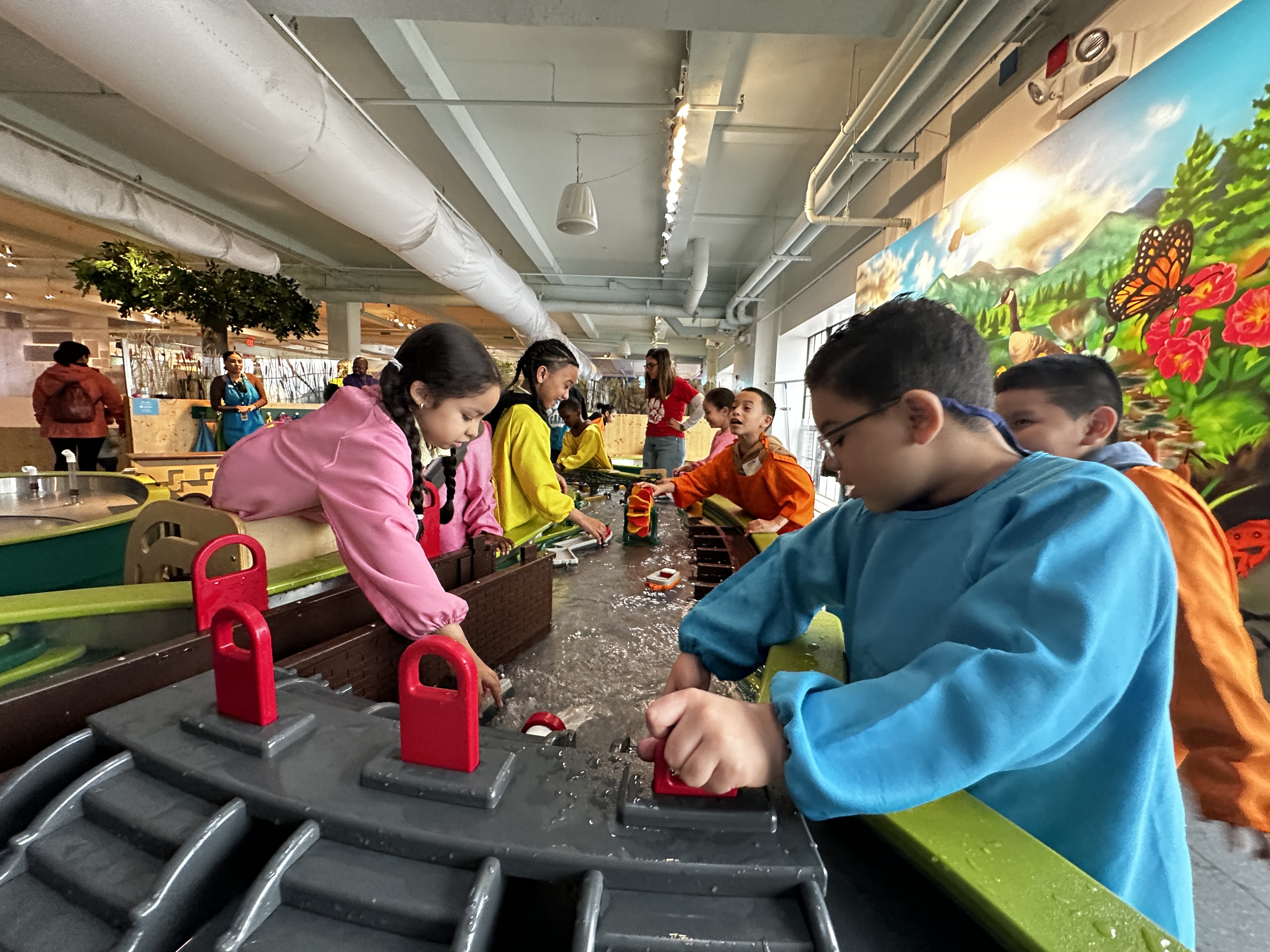
Bronx Children's Museum
- New York
- Website: bronxchildrensmuseum.org
- Grant amount: $30,000
The Bronx Children’s Museum (BxCM) nurtures the wonder of childhood, fostering curiosity, creativity, and a lifelong love for learning through interactive STEAM experiences. Since opening its permanent building in 2022, BxCM has served nearly 100,000 children and caregivers. Demand for programs continues to grow. BxCM is piloting its first summer camp, the Nature of the Bronx (NOTB) Camp. The camp will build upon BxCM’s popular Nature of the Bronx school outreach program, which began in 2011 and served as the inspiration for the “Water Connects Us All” theme throughout the BxCM building. Participating children will be drawn from BxCM’s South Bronx community and beyond. Campers will explore the intersection of nature and the arts, fostering environmental stewardship through hands-on activities, water exploration, physical activity, and creative expression. This comprehensive approach will help mitigate the effects of both Nature Deficit Disorder and “summer slide,” while sparking a lifelong love for creativity and the environment.

Camp Phoenix
- California
- Website: campphoenixonline.com
- Grant amount: $15,000
Camp Phoenix offers year-round excursions and summer camp experiences for youth from low-income backgrounds in the Bay Area. Its summer camp is held at Grizzly Creek Ranch in Portola in partnership with Sierra Nevada Journeys. This partnership provides a fully accessible facility with the capacity for 200 youth, which reduces operational stress and enhances Camp Phoenix’s offerings, such as archery, climbing, and kayaking. The program is structured to provide a blend of outdoor discovery, leadership development, and environmental education. Each day is designed with a balance of physical activities, social-emotional learning workshops, and free time for relaxation and bonding. In addition to the youth served at camp, Camp Phoenix conducts year-round excursions for youth, visiting places like the Monterey Bay Aquarium, Crown Memorial Beach, and Pt. Reyes National Seashore. These activities expose youth to parks and other nature-based locations in California, fostering stronger peer relationships and deepening their connection with nature. This consistent exposure to nature and outdoor activities improves physical health, reduces stress, and enhances social well-being.
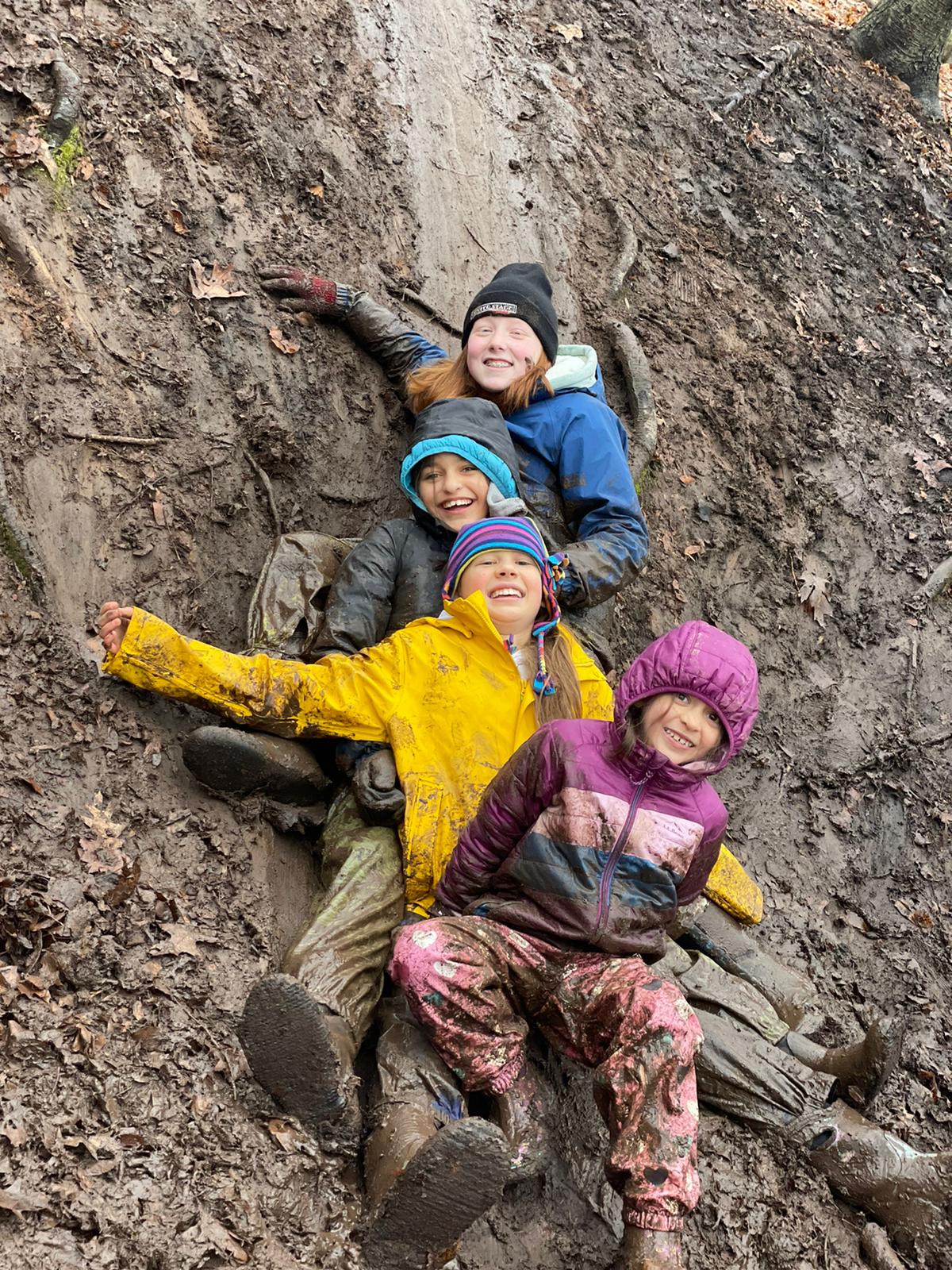
Common Ground
- Connecticut
- Website: commongroundct.org
- Grant amount: $10,000
Affordable, safe recreation opportunities are an ongoing need for New Haven families. Common Ground is a center for learning and leadership that seeks to be a regular, reliable outdoor resource for the local community, inviting residents to connect to their urban environment, build community, grow into their full potential, and contribute to a just and sustainable world. On-campus programs reduce barriers and fears around outdoor time by offering access via a city bus stop, free parking, and outdoor spaces staffed by trained naturalists who can help families engage with nature. Common Ground provides free programming for young people in the urban community to learn, play, and cultivate skills in nature, while also supporting their physical wellness and social/emotional health. One of Common Ground’s goals is to help families feel welcomed and safe in nature through its campus as a starting point, so that they then feel safe and confident exploring the many parks and natural spaces that New Haven has to offer.
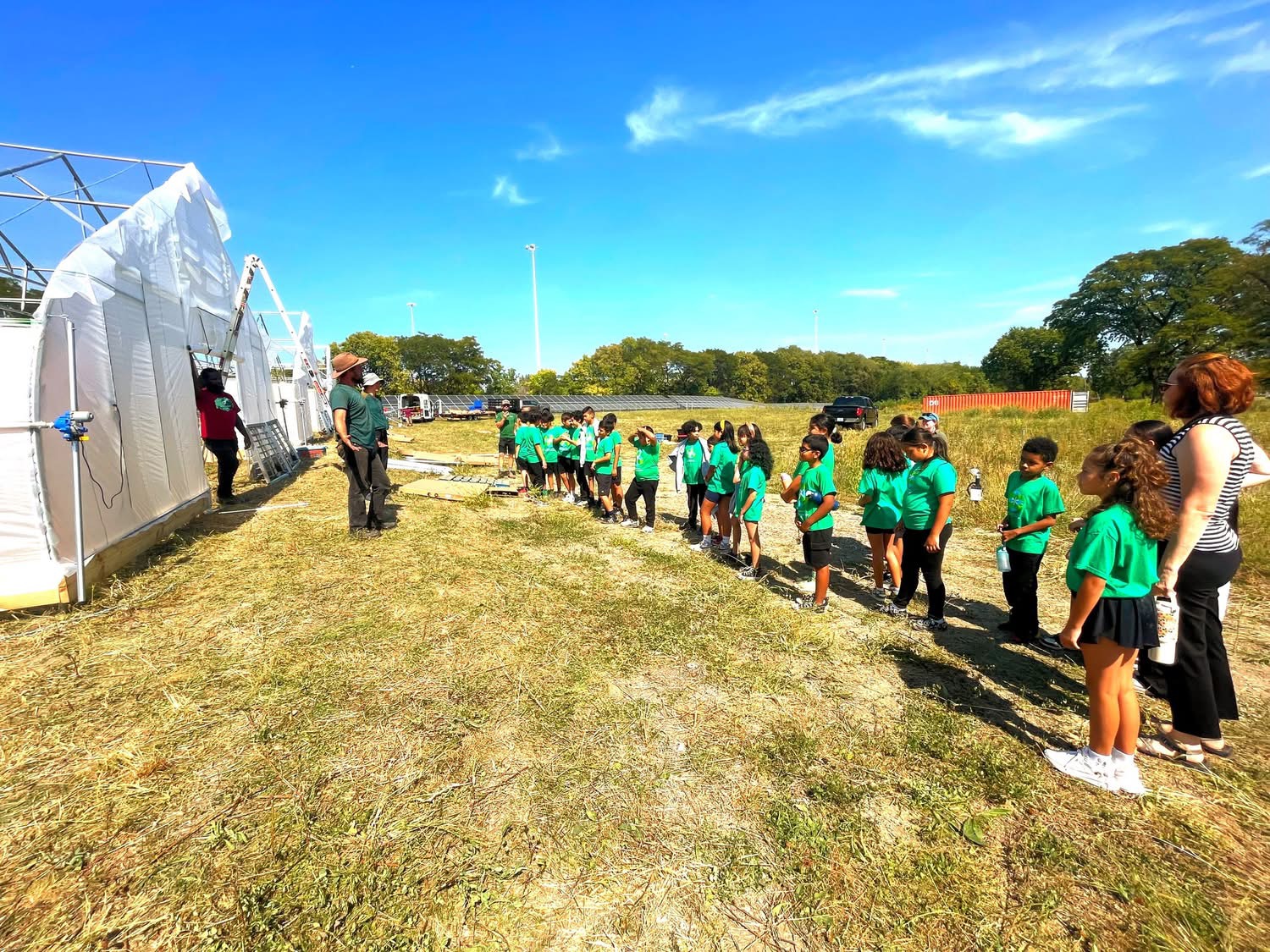
Cultivate Collective
- Illinois
- Website: cultivate-collective.org
- Grant amount: $30,000
Families in Chicago’s Southwest Side neighborhoods of LeClaire Courts, Archer Heights, and Garfield Ridge face a significant lack of green spaces and access to nature, which exacerbates health, well-being, and social cohesion issues. Proximity to highways and industrial areas further impacts air quality and environmental health. Cultivate Collective works in those communities to unite education, wellness, sustainability, and economic vitality to drive meaningful, generational impact. Cultivate Collective’s Outdoor Oasis Program activates a three-acre outdoor portion of its land with new gathering spaces, a production farm, and geodesic domes. This enhances community youth programming, provides additional outdoor structures, and develops nature-based playscapes, encouraging greater outdoor engagement among community members. The program also supports physical and mental well-being, enhance social connections, and provide hands-on learning experiences in sustainability and agriculture. By addressing these critical needs, the Outdoor Oasis Program contributes to a healthier, more engaged, and empowered community. Additionally, it provides educational opportunities and increase social cohesion among participants and residents.
Dakota Wicohan
- Minnesota
- Website: dakotawicohan.org
- Grant amount: $12,500
Dakota Wicohan focuses on Dakota youth living on or near the Lower and Upper Dakota Sioux Communities. It is dedicated to addressing critical issues these youth and their families face, including the erosion of Dakota language and culture and the resultant decline in community well-being. Through programming, and its Remember (its rich heritage), Reclaim (its identity and cultural teachings), and Reconnect (families, student, neighbors, and community members) strategies, Dakota Wicohan offers numerous opportunities for participants to engage in outdoor activities. Its drum group continues to be popular for male youth, who otherwise often would not come to programming. Female youth also participate in dance troop as their own interests in reconnecting with and honoring cultural practices grows. Dakota Wicohan also serves youth through weekly programming for nine months and summer programming that focuses on activities such as camping, foraging, gardening, canoeing, and fishing. A two-day youth culture camp, in partnership with Upper Sioux Community, is held in each community (Upper and Lower Sioux), for youth aged 10-18 accompanied by their families. Camp activities will include its popular Sunktanka (horse) and lacrosse programs, as well as different activity stations that include drum group, pipestone carving, language games, and lacrosse.
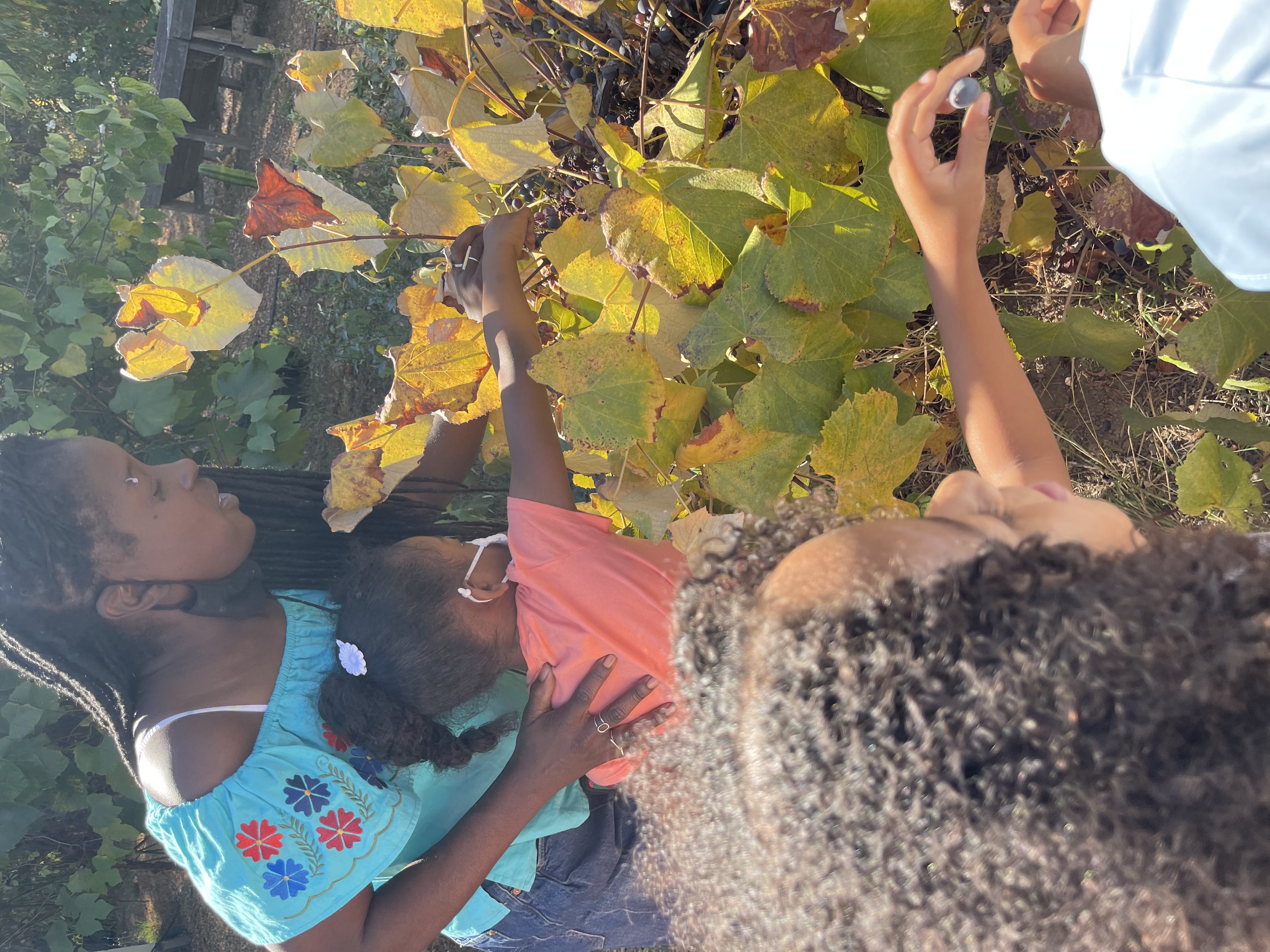
EARTHseed Farm
A fiscally sponsored project of Community Movement Builders
- California
- Website: earthseedfarm.org
- Grant amount: $30,000
The mission of EARTHseed Farm & Permaculture Center is to reconnect its communities to its more-than-human kin through environmental education and ecological design rooted in Afro-Indigenous Wisdom. EARTHseed is both an operating farm and an educational and cultural hub. Its budding Back to Our Roots (BOTR) program is designed to annually serve youth, ages 6-12, from disadvantaged communities that range from heavily urbanized to rural, ag-dominant areas. A leading unifying need and desire EARTHseed has identified with its partners centers on youth learning how to make healthy choices; seeing farmers and educators that reflect their cultural and lived experiences; and providing easy access to local and healthy foods. BOTR programming includes formal group events and immersive U-Pick experiences. Through this programming, youth receive foundational experiences of nature connection at EARTHseed’s farm (learning skills such as harvesting, cooking, making, and other nature based hands-on skills); exposure to concepts such as Sankofa, Ujima, soil building, water conservation, etc. through EARTHseed’s Afro-Indigenous curriculum; and being surrounded by trees, flowers, and lots of care, where EARTHseed embodies individual and community wellness through good food, restorative experiences in nature, and community building.

Excite All Stars
- Louisiana
- Website: exciteallstars.org
- Grant amount: $17,500
While Hurricane Katrina highlighted the need for trauma-informed care, the COVID-19 pandemic exacerbated these issues. According to a Brookings Institute study, PTSD rates among youth are now 4.5 times greater than they were post-Katrina, with more than 70% of the youth negatively impacted. Excite All Stars is a beacon of support for these New Orleans youth, empowering them to become community advocates and address these issues head-on. Excite All Stars’ Leadership Academy and Outdoor Adventure Program engages participants in leadership activities throughout the year, including outdoor adventure leadership workshops and team-building expeditions that involve activities such as hiking, camping, and orienteering. By immersing youth in nature and structured activities, Excite aims to foster personal growth, build community, and empower youth to overcome challenges. Through these unique outdoor experiences, Excite continues to work toward its mission of shaping kids into leaders who will change the world.
.jpg)
Friends of Nature Parks
- Florida
- Website: friendsofnatureparks.org
- Grant amount: $10,000
Gainesville has 30 managed conservation areas, which include nature parks and wetlands. While many of these areas are located near lower income neighborhoods, access remains an issue. Students and their families may avoid outdoor nature-based recreation in these areas, if they have not been introduced to or feel safe in these natural environments. Friends of Nature Parks (FONP) works to familiarize students with Gainesville’s conservation areas through outdoor learning experiences that help alleviate barriers to recreational use of nature parks and wetlands. FONP’s Poetry/Prose in the Park (PITP) public school program aims to change the perception and use of conservation areas through hands-on, interactive outdoor education field trips that offer safe experiences led by trained park environmental education staff. Prior to the trips, teacher in-services are held at a nature park, so that classroom teachers can be introduced to the program and participate in curriculum training. During the field trips, students learn about conservation, environmental ecosystems, how to identify plants and wildlife, and more. After the field trips, students write a poem or prose in response to their nature park experience, which depicts their perception of the nature park and the recreational opportunities. PITP brings third and fourth graders, teachers, and chaperones to Morningside Nature Park and Sweetwater Wetlands Park.
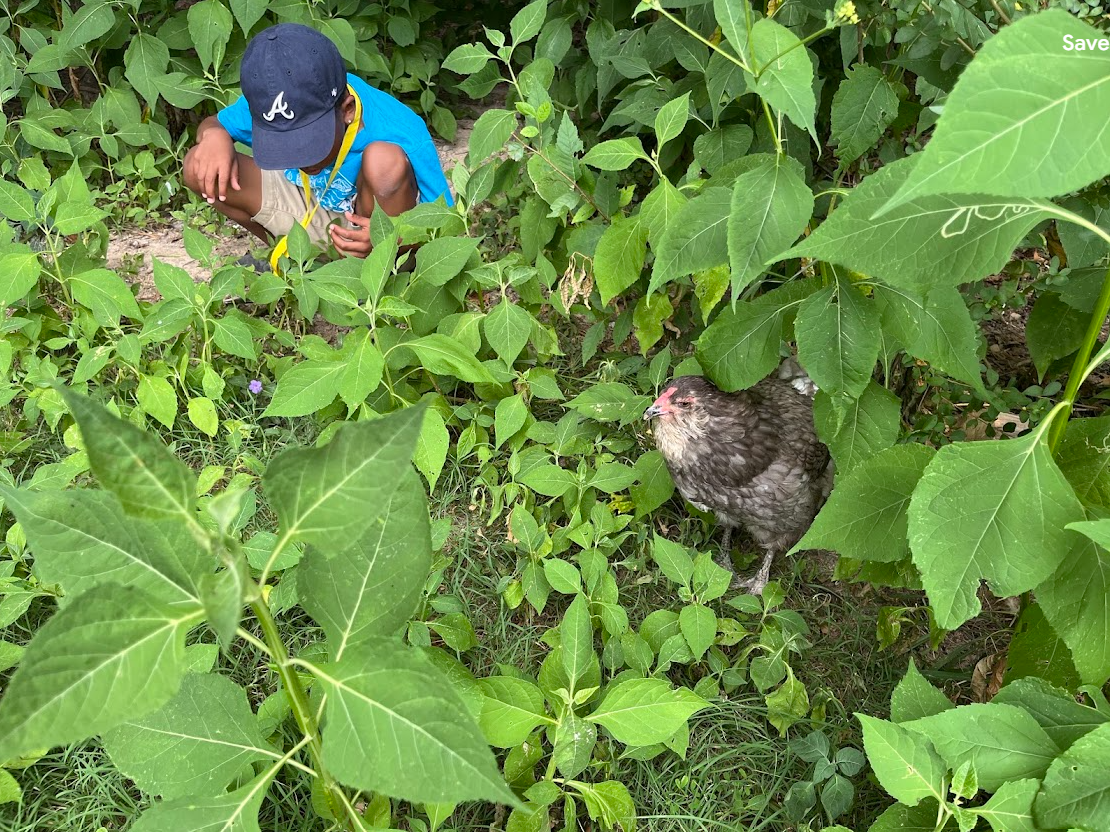
Friends of the Hub Farm
- North Carolina
- Website: thehubfarm.org
- Grant amount: $30,000
Friends of the Hub Farm (FOHF) supports the educational mission of the Durham Public Schools (DPS) Hub Farm, which engages the community in meaningful outdoor experiences through direct outdoor education, capacity building, and community engagement. The primary goal of FOHF is to provide internship and camp opportunities that fall outside of DPS’s educational activities. FOHF’s Hub Farm Summer Camp serves rising first through fifth graders. One DPS teacher and one DPS high school intern lead each group and are responsible for their campers for the eight-day session. Educators create developmentally appropriate and academically enriching lessons. Activities include learning about the forest ecosystem, exploring the creek, fishing in the pond, and performing taste tests with produce grown in the garden. High school interns play an important role in camp by being positive role models for campers. The interns learn how to properly manage a group, design and lead activities, and work collaboratively to create a safe camp environment. All three groups (teachers, interns, and students) spend the entirety of summer camp outside exploring the 30 acres of The Hub Farm.
Girls Inc. of St. Louis
- North Carolina
- Website: girlsincstl.org
- Grant amount: $30,000
Girls Inc. of St. Louis (GI) serves girls of color who attend under-resourced schools and reside in neighborhoods affected by high poverty rates and crime. Their schools have high drop-out and suspension rates, high incidents of violence and juvenile referrals, and poor grade-level achievement. GI programs address learning gaps, health and wellness through prevention programming, and economic development through support for collegians and post-secondary career path development. The goal of GI’s Eureka! Teen Achievement Program is for the girls to graduate from high school and go on to attend college (often the first to do so in their families). Girls are given the tools they need to attend college successfully and to contribute to their communities as future leaders. The first two years of the program focus on STEM and leadership development, the following three years include internships with area non-profits and businesses. In addition to STEM and leadership opportunities, the girls participate in sport activities (such as soccer, running and waking clubs) through Girls Inc Sporting Chance, which enables the girls to build a foundation for enjoying sports, adventure, and physical activity throughout their lives. Girls develop movement and athletic skills, cooperative and competitive spirit, and healthy habits. They experience the benefits and excitement of taking positive risks that bolster their self-confidence and personal growth.
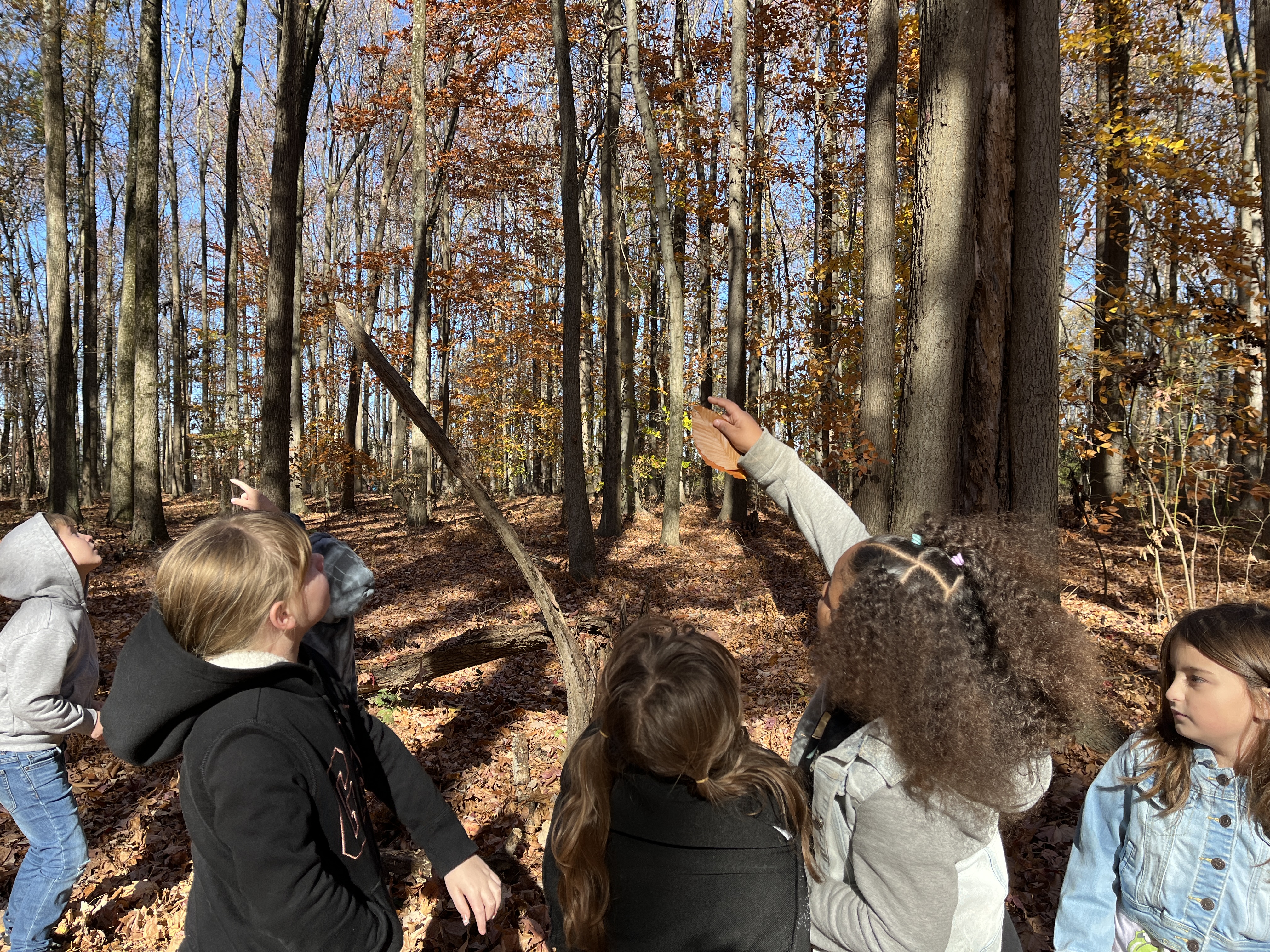
Heritage Conservancy
- Pennsylvania
- Website: heritageconservancy.org
- Grant amount: $30,000
In Lower Bucks County, access to safe outdoor areas is limited, and outdoor recreation may not be a priority or possibility for many families. To address this, Heritage Conservancy partners with Keystone Elementary School, providing its students with the opportunity to connect with nature and to become comfortable in the outdoors. Heritage Conservancy’s Croydon Woods is adjacent to Keystone Elementary School, making it a frequently used site for outdoor educational programs that serve kindergarten through fifth grade students. Heritage Conservancy also works to develop outdoor leaders at Croydon Woods through in-school and after-school programs. Through its Tree Guardians program, teacher-selected “leader students'' visit Croydon Woods Nature Preserve, learn about the importance of trees, and assist with tree monitoring and protection. Heritage Conservancy also supports students in hands-on learning, leadership, team building skills, and social and emotional development, with a focus on trees and forests through its after-school program sessions.
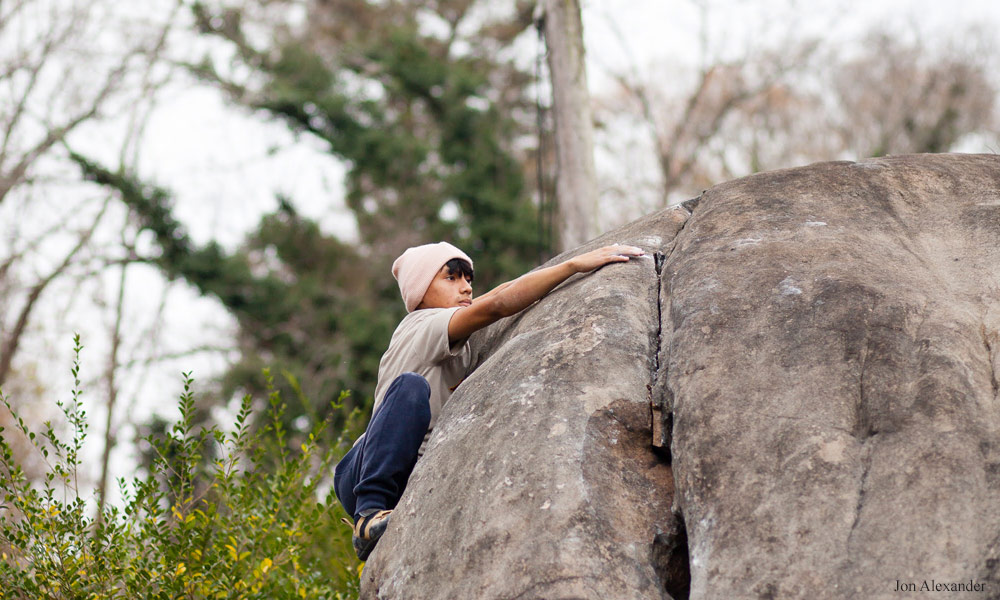
Lookout Mountain Conservancy
- Tennessee
- Website: lookoutmountainconservancy.org
- Grant amount: $10,000
Lookout Mountain Conservancy (LMC) leads the way in community-centered conservation and environmental education by providing access to the mountain's natural beauty, wildlife habitats, recreational opportunities, and places of historical significance. Its Howard School Intern Program is a unique, nationally recognized land trust model, which uses land conservation to create pathways to economic mobility, based on incorporating how outdoor experiences affect five domains: a person's self-concept and identity, group affiliation and connection to others, acquisition of skills and competencies, prosocial norms and behaviors, and changes in outlook and attitude. LMC combines this evidence-based research with job skills and leadership training to create an environment where youth can learn, grow, challenge themselves, lead, and build confidence. In addition to doing the conservation work and building trails, bouldering parks, and more, interns learn how to participate in outdoor recreation activities taking place in those spaces.
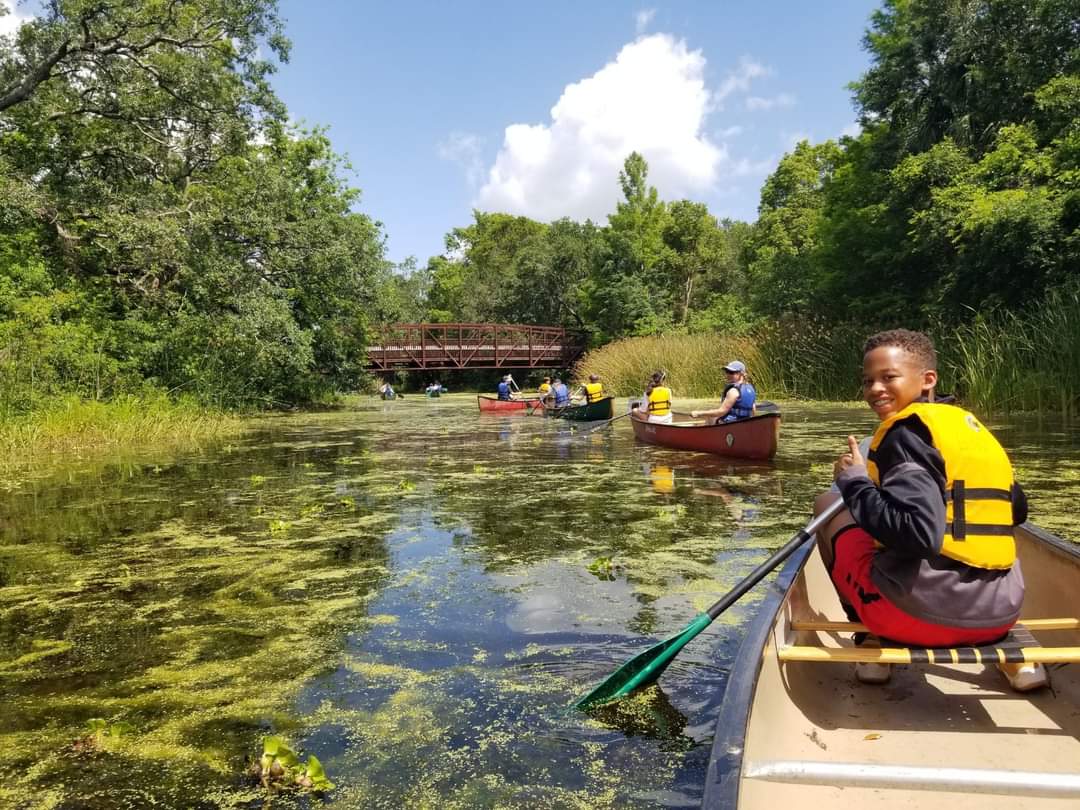
LOOP NOLA
- Louisana
- Website: loopnola.org
- Grant amount: $20,000
LOOP NOLA is focused on making access to the outdoors more equitable for youth from underserved, urban communities, so everyone can experience the physical and mental health benefits of outdoor recreation, along with the joy and awe that result from time spent in nature. By accessing the benefits of the outdoors, the overall well-being of LOOP NOLA’s youth increases no matter their socioeconomic background. This positively impacts their ability to be more engaged at school, work, and in their community. Through LOOP NOLA’s Partner Programs, students from local schools and youth-serving organizations visit greater New Orleans parks and green spaces and experience LOOP NOLA’s outdoor recreation programming, which includes canoeing, high and low ropes, team building, fishing, hiking, survival skills challenges, and educational activities. By participating in LOOP NOLA’s programs, urban youth experience outdoor activities in a safe, welcoming environment and report feeling more confident in themselves and their abilities, less stressed and anxious, more comfortable exploring outside, more likely to spend time outdoors on their own or with friends and family, and more interested in protecting nature.
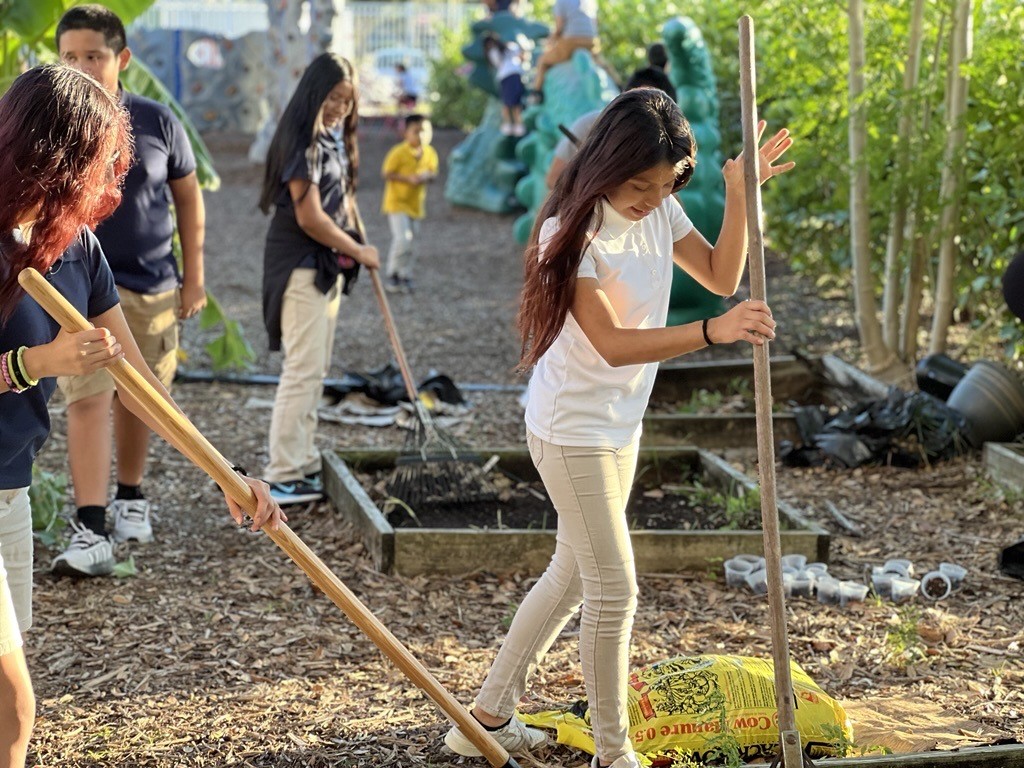
Naples Botanical Garden
- Florida
- Website: naplesgarden.org
- Grant amount: $30,000
Naples Botanical Garden was one of five public gardens selected by the United States Botanic Garden to join a two-year learning cohort called Plants and Climate Change Education (PLACCE), in which peer institutions created and tested different plant-centered climate change education models. Naples Botanical Garden piloted D.R.A.G.O.N. Squad (Dedicated Researchers Adventuring for Greener Outdoors Now) as a one-week summer intensive, which has transitioned into a weekly after-school program. Garden Educators introduce habitats in a classroom setting, along with their relevant climate change issues, before taking students on excursions to explore and learn. Naples Botanical Garden partners with The Water School at Florida Gulf Coast University (FGCU) to take students through labs, classrooms, and dorms. FGCU faculty and graduate students lead the group through the campus Food Forest and on walks through an onsite swamp. The Garden itself is also a key field trip destination where students explore preserves, nurseries, labs, and gardens, and learn about plant conservation and habitat restoration. Other field trip locations highlight natural resources in the Immokalee community, like ethical angling at a local lake where they learn about climate change impacts on life underwater.
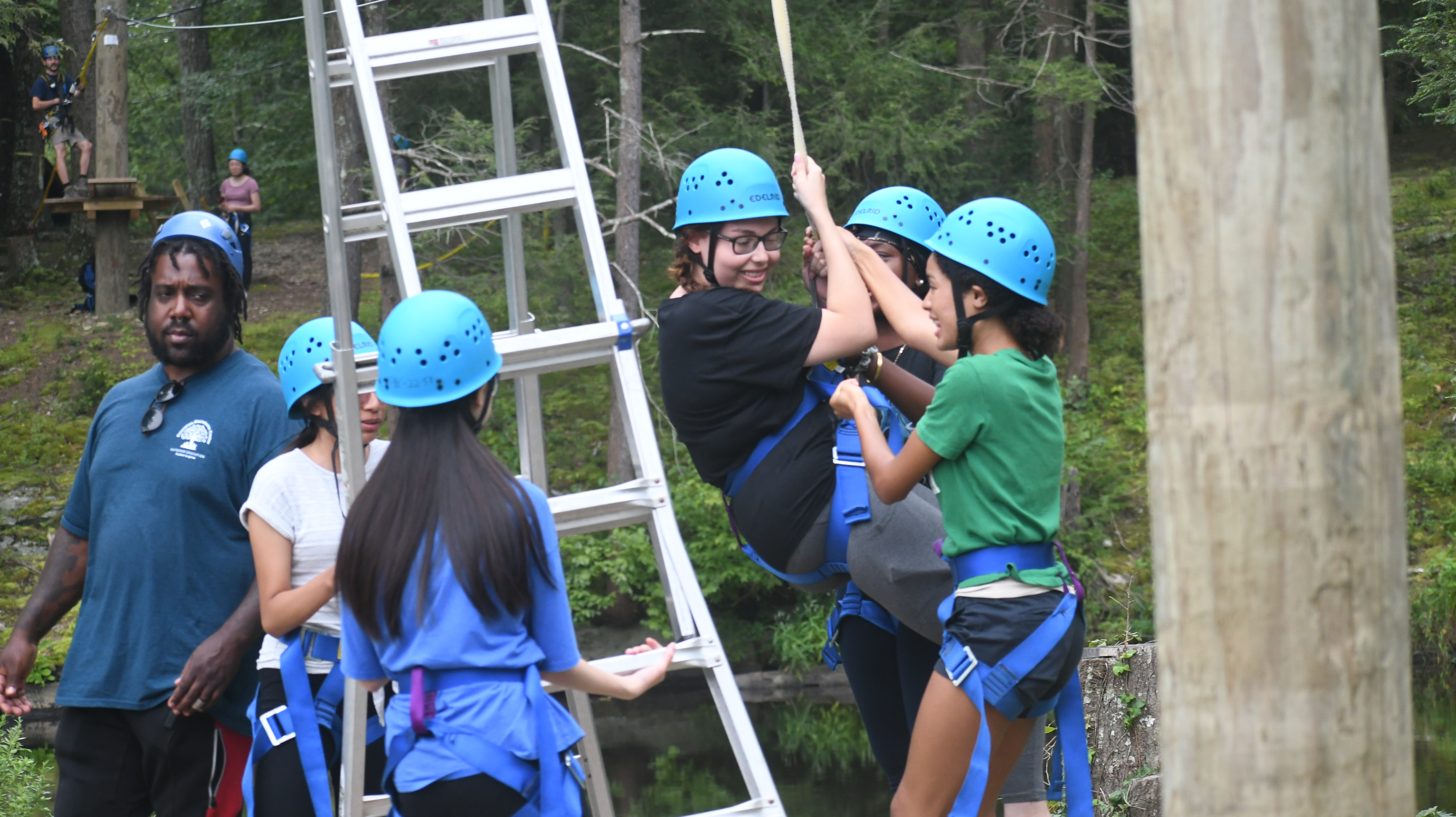
PowerPlay NYC
- New York
- Website: powerplaynyc.org
- Grant amount: $10,000
PowerPlay NYC believes that if all young people, especially girls, have quality programs with research-based outcomes, they will thrive in academia, college and career readiness, civic engagement, and general well-being. If girls do not participate in sports by age 14, however, it is unlikely they ever will. PowerPlay helps level the playing field one sport at a time with an eye on the finish line—developing capable, competent, and fearless girls. Its goal is to create future leaders and change agents by building tools in their toolbox of life skills and prevent some of the pitfalls that teenage girls may encounter. PowerPlay's SuperSTARS Leadership Academy (SSLA) is a high-impact, year-long leadership development program that prepares an annual cohort of high school girls for college and the workforce through a structured, girl-centered approach. With leadership, sports, fitness, and health as its foundation, SSLA also offers mentoring, peer coaching, and college and career readiness. One of the goals is to expose the girls to new and unique experiences and strengthen their personal relationships with nature and the environment around them. Through overnight events that are centered on developing team-building skills, confidence, and a passion for environmental stewardship, the girls have the opportunity to camp, hike, complete ropes courses, rappel down a dam, and participate in guided raft tours among other outdoor exploration activities.
See You at the Top (Syatt)
- New York
- Website: syattcle.org
- Grant amount: $10,000
In underserved communities, young people face severely limited resources to explore nature, develop crucial skills, and celebrate their diverse backgrounds. This disparity hinders personal growth, restricts potential, and prevents youth from becoming active community leaders. See You at the Top (Syatt) addresses the critical lack of accessible outdoor engagement, leadership development, and culturally representative opportunities for youth in Northeast Ohio. Through its comprehensive Youth Recreation Leader Certification, Syatt equips youth of color with essential skills in outdoor activities, civic engagement, and leadership. A curriculum encompassing biking, camping, wilderness survival, swimming skills, outdoor cooking, first aid/CPR, environmental and social justice education, and mindfulness practices, empowers participants to become confident leaders and stewards of their community and environment. Also, by incorporating swimming skills, Syatt addresses a crucial community need, while opening pathways to employment for youth and young adults.
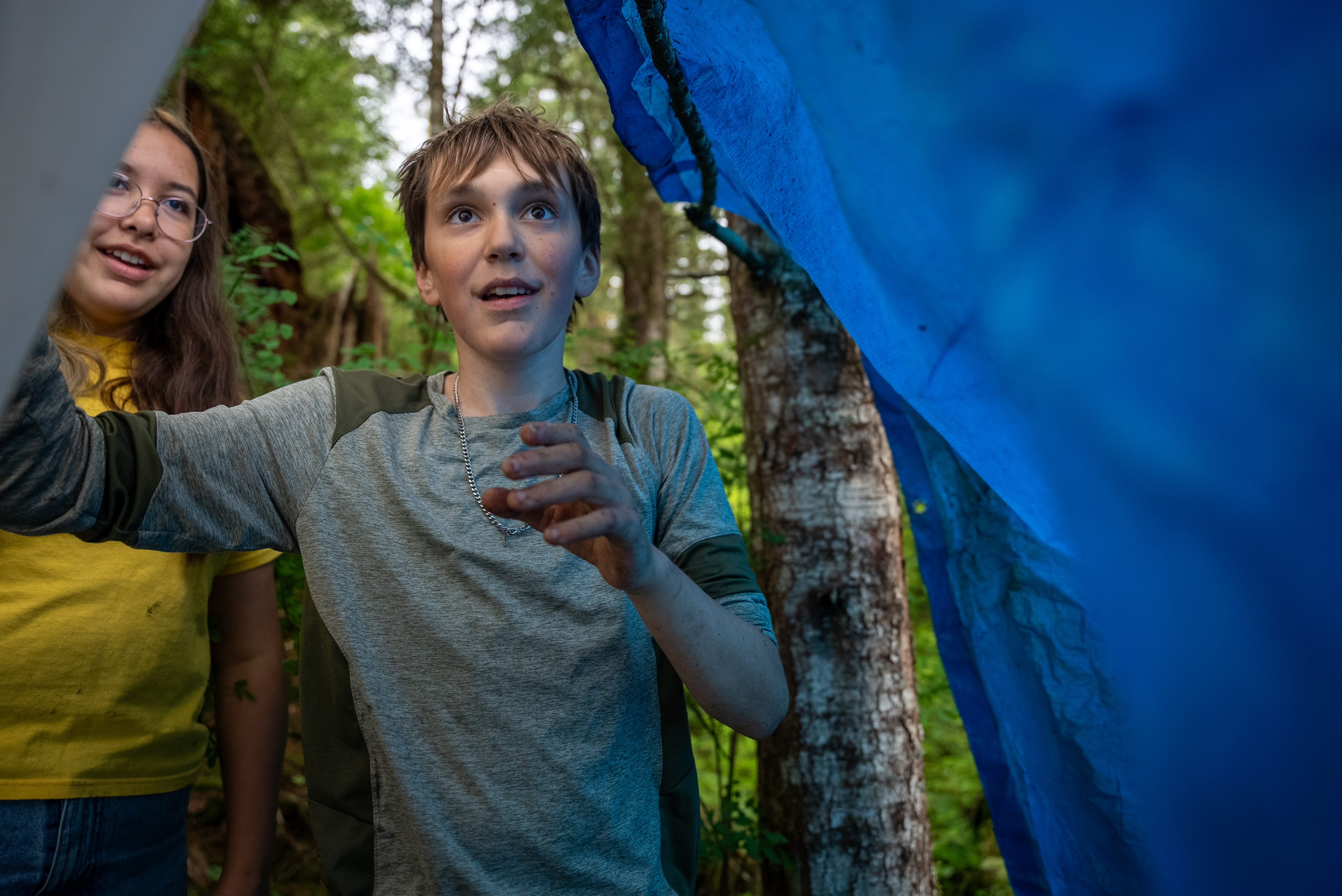
Sitka Trail Works
- Alaska
- Website: sitkatrailworks.org
- Grant amount: $10,000
Sitka Trails Works believes the immense mental, physical, and social emotional benefits of time spent in nature should not be limited only to families with access to substantial resources or knowledge. Sitka Trails Works’ programming is free, targeted, culturally informed, and rooted in community relationships. Its outdoor summer camp program for youth ages 8-18 is taught with an Indigenous lens, guided by the Southeast Alaska Traditional Tribal Values. By reducing barriers to access, these camps provide low-income and Tribal youth with new opportunities to strengthen their connection to the lands and waters around them. Youth participate in hands-on activities such as harvesting local foods, practicing fire-building, ocean kayaking, and more. By participating in these activities, students learn valuable outdoor skills that allow them to feel more comfortable in the intimidatingly cold and wet coastal rainforest. With stewardship projects like cleaning up marine debris or maintaining trails, the kids practice giving back to instill a sense of environmental responsibility. By hearing Lingít stories, crafting traditional arts, and using traditional placenames, campers engage with the culture and language that has sustained this land since time immemorial.

StreetWaves
- Florida
- Website: streetwaves.org
- Grant amount: $10,000
StreetWaves began as a free weekend surfing experience for children from under-resourced communities, though it quickly grew by adding swimming, boating and environment education programs. Its programming has exposed thousands of youth to the ocean and has helped many students become lifeguards, ocean rescue workers, boat crew, mechanics, and boat builders. All of StreetWaves’ services include a daily, nutritious meals and are 100% free of charge for all student participants. StreetWaves’ After-school Aquatics Enrichment Program, aims to improve swimming proficiency and addresses the water safety needs of South Florida communities. After students demonstrate swimming proficiency, they embark upon a nine-week journey with StreetWaves where students how to swim, surf, and pilot a boat.
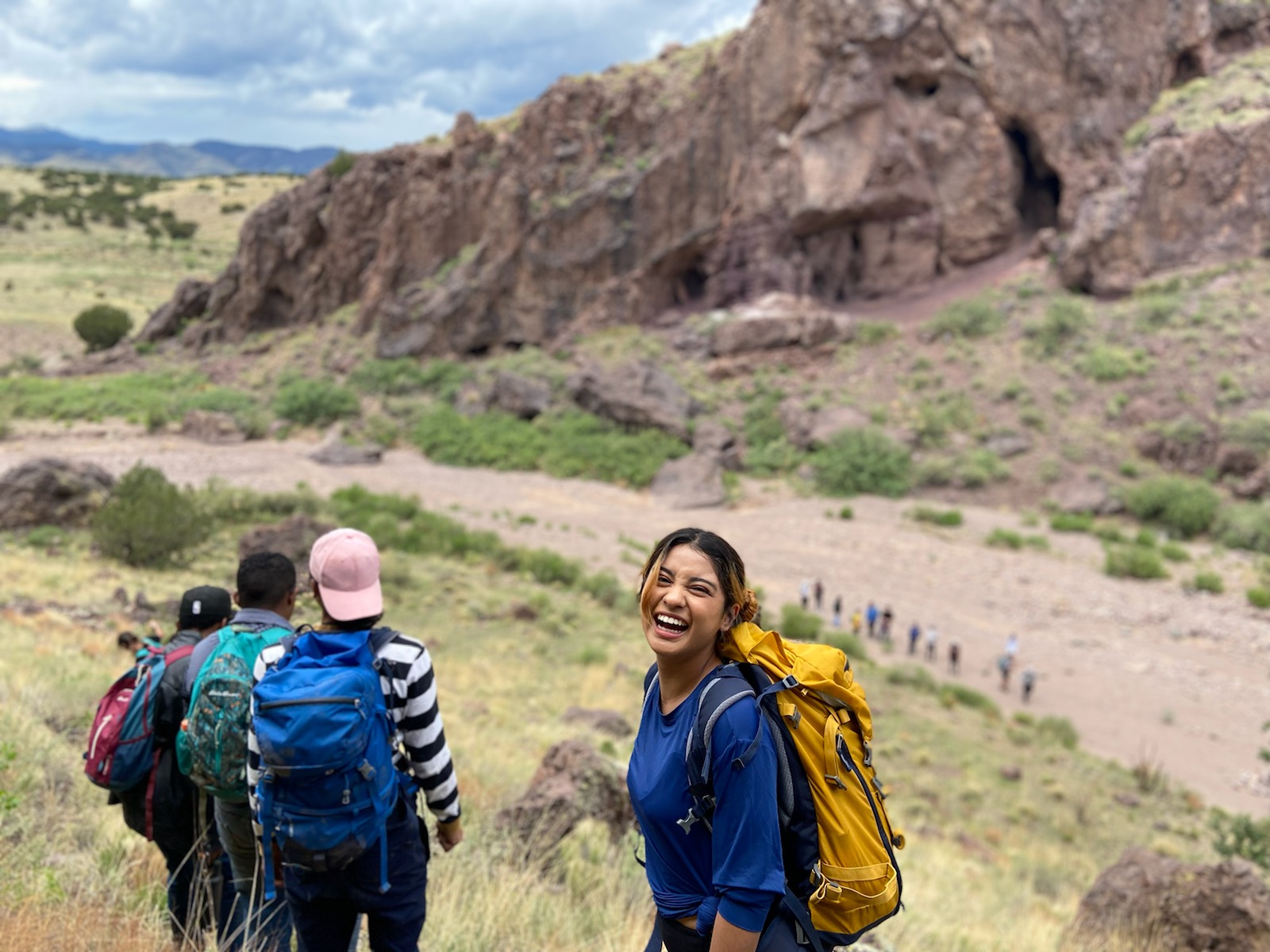
The Semilla Project
- New Mexico
- Website: semillaproject.org
- Grant amount: $10,000
The Semilla Project (TSP) cultivates leadership, identity, and engagement with nature among youth through free outdoor programs. Through culturally affirming, land-based approaches, its helps youth grow into strong, resilient leaders with a love of the outdoors and the skills to advocate for change for future generations. TSP’s cornerstone program, SemiYA! engages youth, ages 13-24, in outdoor activities, such as rock climbing and backpacking. This is provided at no cost to participants, and it includes equipment, training, and transportation to enable participation at any income or experience level. Outdoor activities feature a curriculum that shares Indigenous knowledge, cultivates leadership skills, promotes social-emotional wellness, and empowers all youth to know that they belong in outdoor spaces. By engaging in outdoor recreation, youth gain benefits to their own health and are galvanized to protect those benefits—and the lands that provide them—for their communities, becoming leaders and outdoor advocates.
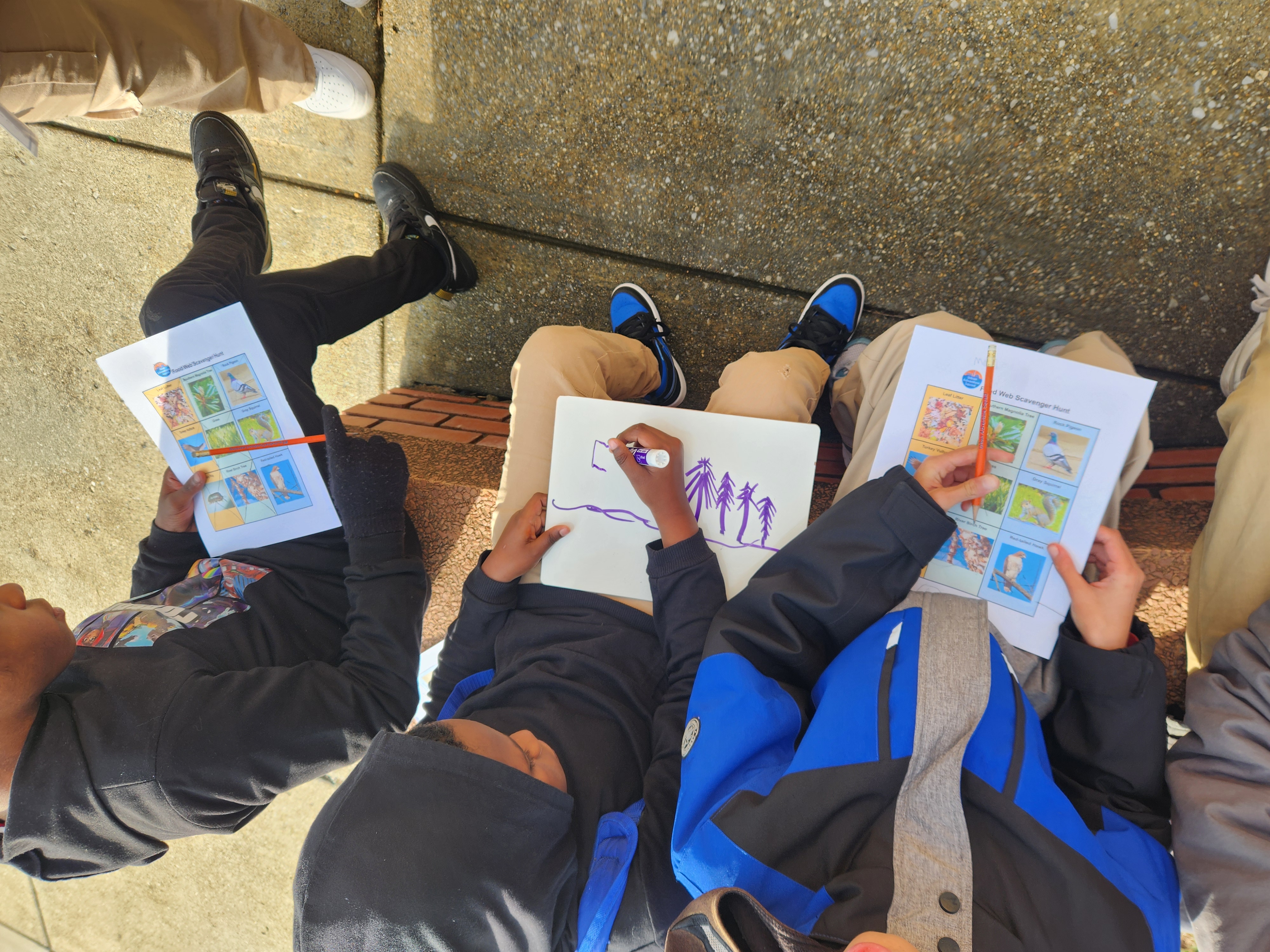
Urban Adventure Squad
- Washington, D.C.
- Website: urbanadventuresquad.org
- Grant amount: $20,000
Urban Adventure Squad supports schools and school communities across Washington, D.C., with outdoor learning programs. It envisions a future where children spend more time learning outside and engaging with diverse peers, mentors, and community leaders to develop solutions for pressing environmental and socioeconomic challenges. Through Urban Adventure Squad’s efforts to cultivate outdoor learning in the DC public school system (particularly in underserved neighborhoods), it has created a network of outdoor learning schools in which teachers and staff incorporate outdoor learning opportunities throughout the school day, on and near school grounds. Children in grades 1-5 receive regular visits from Urban Adventure Squad educators. Lessons are based on hyperlocal elements to explore on and near school grounds, including trees, rain gardens, a local type of architecture, historic neighborhoods, or local wildlife species (such as squirrels, red-winged blackbirds, and bats). Students engage in hands-on learning, including: using handheld microscopes to study leaves, tree bark, and other surfaces; learning to use binoculars to identify local species of birds; writing a field guide of flowers, trees, and wildlife in the neighborhood; and learning to use a compass.
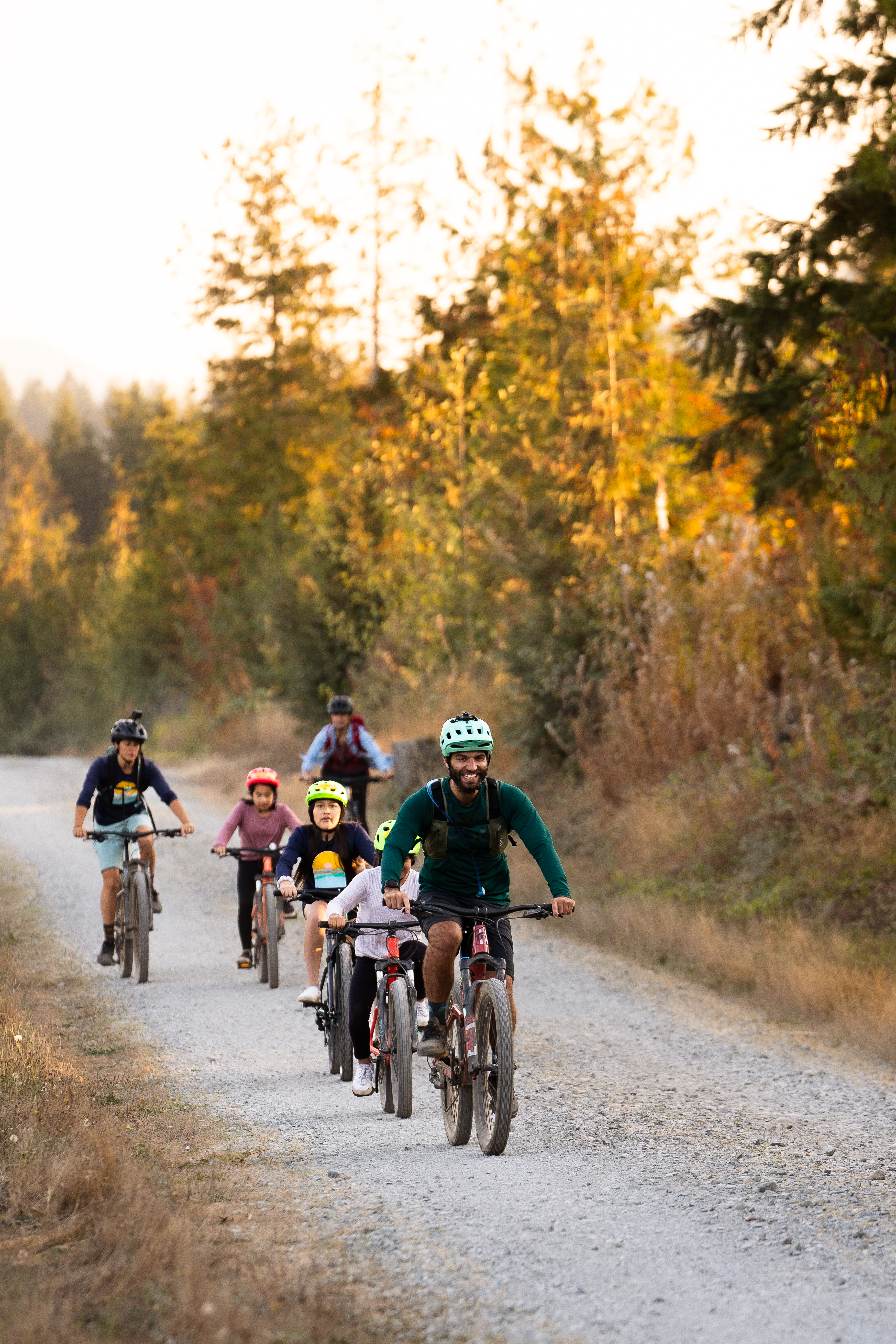
Vamos Outdoors Project
- Washington
- Website: vamosoutdoorsproject.com
- Grant amount: $10,000
Vamos Outdoors Project (Vamos) works to build community through connection to the land and access to the outdoors. It serves the Latine, migrant, multilingual, newcomer, and housing insecure communities of Whatcom and Skagit County. These communities face many barriers to access outdoor and recreational activity and are underrepresented in those spaces. Youth in these communities also face barriers to healthy developmental experiences, which can be mitigated through outdoor recreation programs and relationship-building with representative mentors. Vamos’ free, year-round programming includes biking, boating, swimming, climbing, backpacking, la Lectura, hiking, climbing, and more.
Vibe Tribe Adventures
- Colorado
- Website: vibetribeadventures.org
- Grant amount: $15,000
Vibe Tribe Adventures (VTA) offers outdoor recreation and adventure sports opportunities for urban and rural youth and their families. VTA’s Urban Trekker, Youth Experiential Learning and Outdoor Recreation Program, engages urban youth, ages 8-to-24, in monthly activities that blend outdoor adventure with educational enrichment. The program operates with a dual focus on adventure activities and mindful, educational courses, ensuring a balanced approach to physical health, mental well-being, and environmental education. Each month, participants engage in a dynamic outdoor adventure activity designed to promote physical activity, exploration, and team building. These activities are chosen to introduce youth to adventure sports and outdoor skills, fostering a sense of adventure and resilience. In addition to the adventure activities, the program includes a mindful and educational course each month, which is designed to support mental health, mindfulness, outdoor safety, and environmental education.
Wenatchee River Institute
- Washington
- Website: wenatcheeriverinstitute.org
- Grant amount: $10,000
Wenatchee River Institute’s (WRI) mission is connecting people, communities, and the natural world. WRI recognizes that many youth in North Central Washington are not able to easily access programs that foster a connection to the natural world. To help address access, WRI has serves as a unique steward, advocate, and educator—inspiring locals, students, and visitors to understand, explore, appreciate, and connect with the beauty and environmental richness of the natural world. WRI partners with schools all over North Central Washington to offer student programs during the school year and camps during the summer. WRI also offers community education programs, including speaker series, bird walks, art workshops, and more. WRI’s The Traveling Naturalist in the Classroom program brings WRI’s hands-on, environmental education program to rural under-resourced schools. Through the program, students participate in monthly lessons to develop connections to nature near their school and through a full day field trip to a natural area in the region.
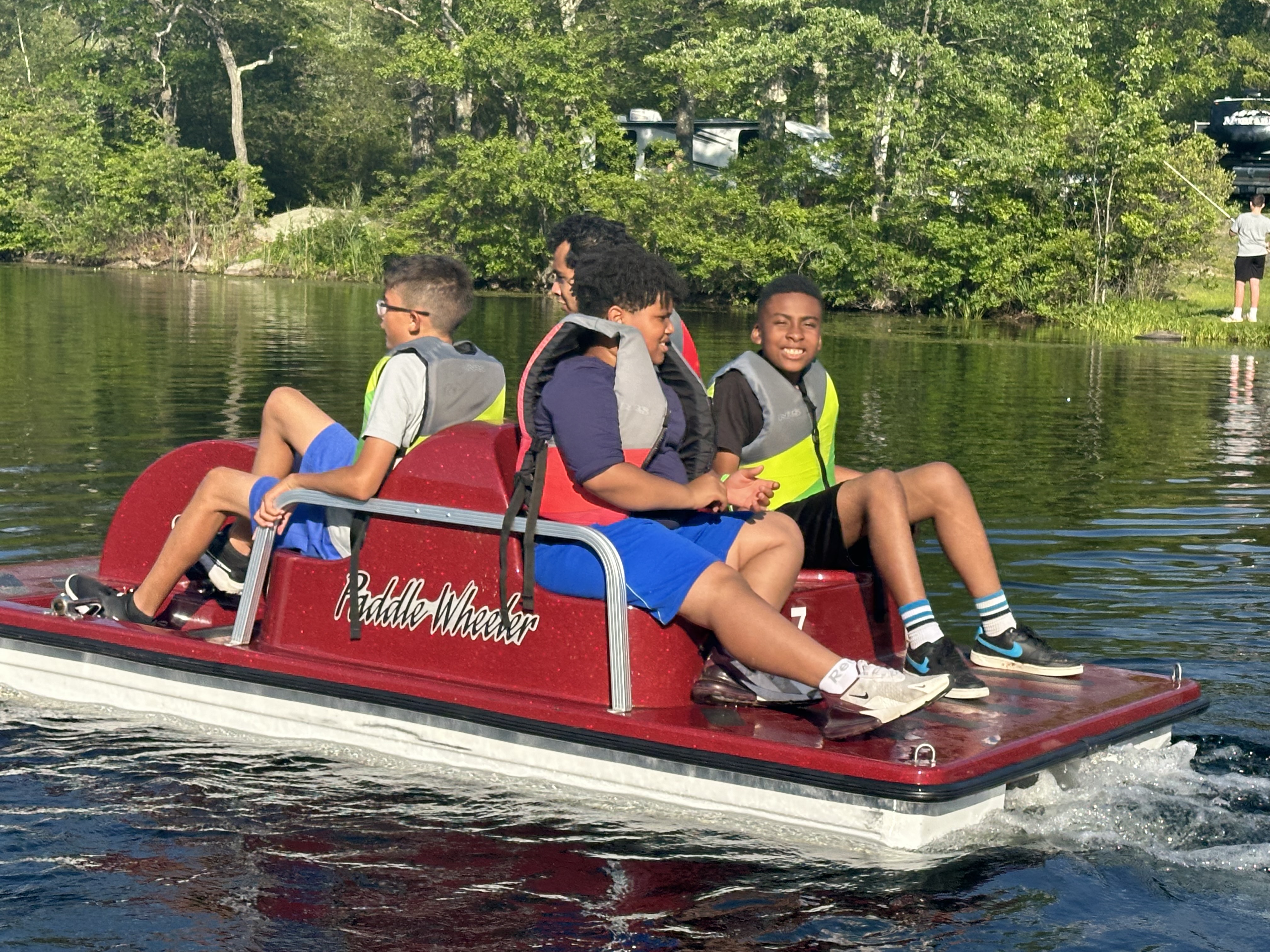
West Point Association of Graduates
- New York
- Website: westpointaog.org
- Grant amount: $30,000
After-school programming for the Highland Falls Intermediate School was identified by local stakeholders as a need among families and an opportunity for engagement between West Point and the Highland Falls communities. The West Point Association of Graduates (WPAoG) fills this need through its free CONNECT after-school program, which seeks to engage, challenge, and empower local students through high-quality experiences that support academic and extracurricular pursuits. CONNECT’s Nature & Recreation Program is a free after-school initiative that offers students in grades K-6 outdoor educational experiences. It encourages outdoor exploration and discovery through a series of field trips and educational programs.
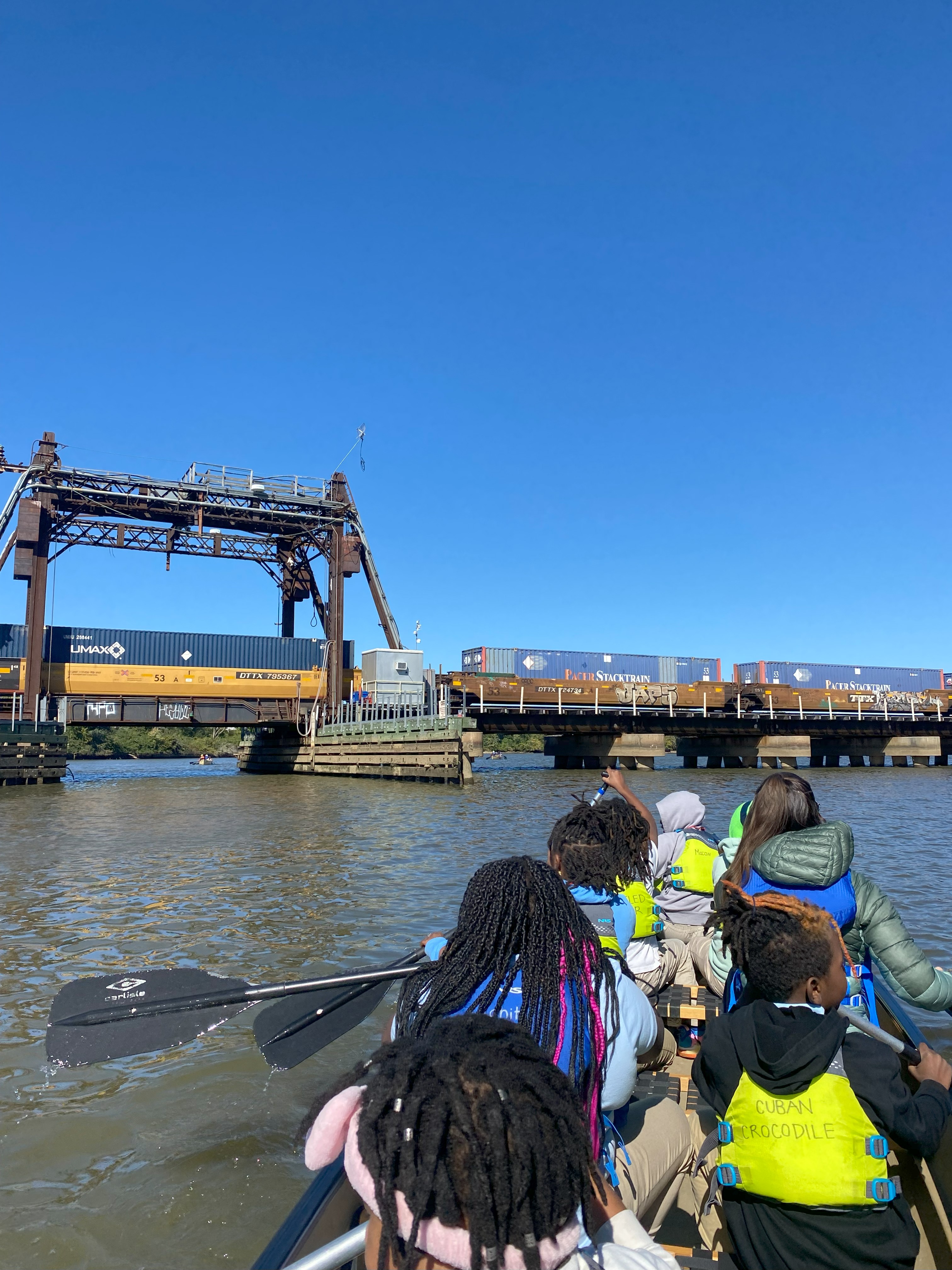
Wilderness Inquiry
- Washington, D.C.
- Website: wildernessinquiry.org
- Grant amount: $15,000
Wilderness Inquiry’s mission is to connect people of all ages, backgrounds, identities, and abilities through shared outdoor adventures so that all people can experience the benefits of time spent in nature. Through its core values of paddling together, finding a way, seeking the exceptional, and nurturing inclusion, Wilderness Inquiry promotes the outdoors as a place where everyone belongs. Wilderness Inquiry’s Canoemobile programming in Washington, D.C. is a “floating classroom.” Canoemobile offers opportunities to canoe and participate in interdisciplinary land-based activities that support classroom learning, build outdoor skills, increase confidence, and promote connections to community and nature. Wilderness Inquiry supplies gear and equipment, adaptive supports, and highly trained outdoor leaders so that participation is available to all youth. The program engages youth to improve school performance, cultivate a stewardship ethic, and create pathways to pursue educational and career opportunities in the outdoors.
.jpg)
Wilderness Youth Project
- California
- Website: wyp.org
- Grant amount: $30,000
All children need nature, and yet many lack access to whole-child experiences in the outdoors. Wilderness Youth Project (WYP) programs focus on serving youth from marginalized communities, providing them with immersive experiences in nature and individualized support from trained and compassionate staff mentors. WYP’s full scholarship program, Bridge to Nature, serves children from low-income families at school, after-school, and early childhood education sites in South Santa Barbara County. Bridge to Nature programs are offered at no cost to families and schools, so youth can focus on the benefits of nature connection. WYP guides youth through self-directed exploration, games, awareness practices, naturalist skills, inquiry-based learning, and storytelling. The facilitated activities all bolster youth’s well-being, joy, learning, and self-esteem.
